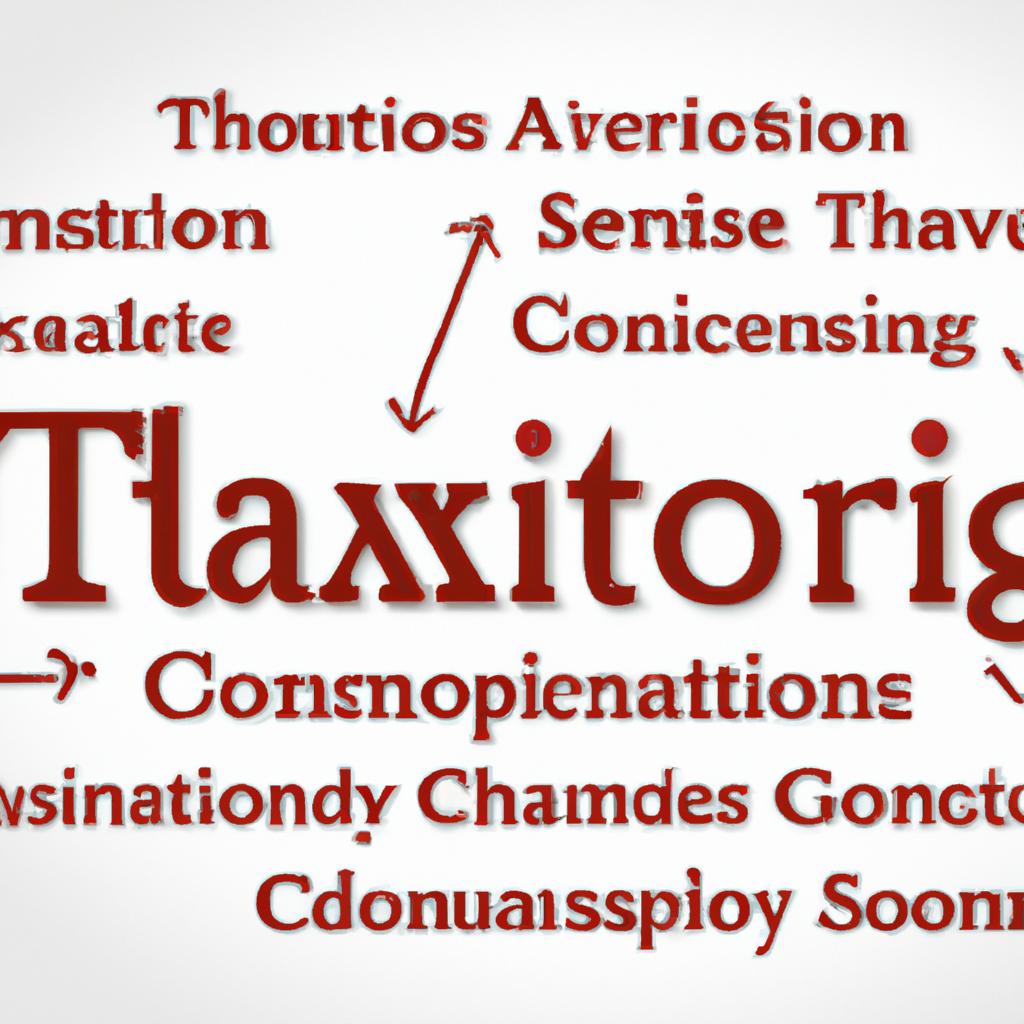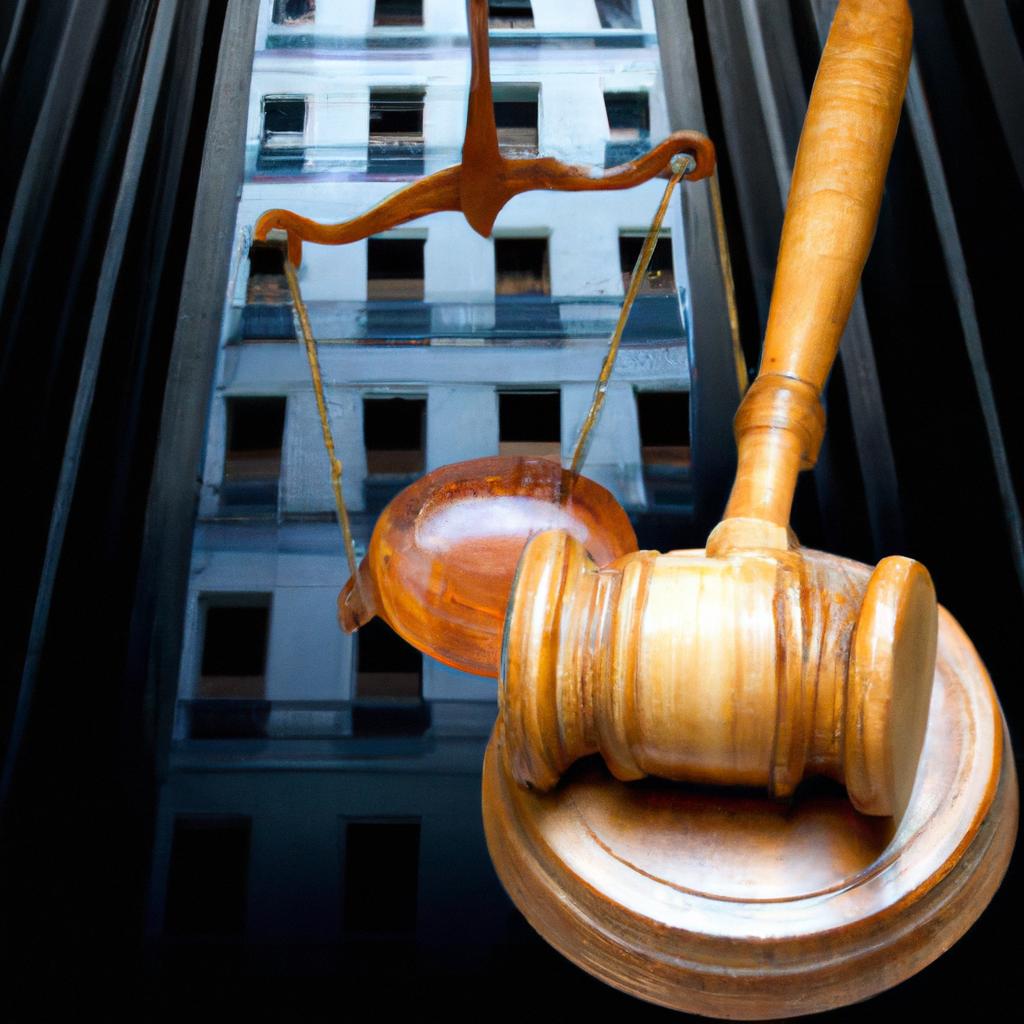In the intricate tapestry of life, there exists a fundamental document that often goes overlooked until it is too late – the Last Will and Testament. As experienced professionals in the realm of estate planning, the team at Morgan Legal Group understands the importance of ensuring that one’s final wishes are clearly articulated and legally binding. In this comprehensive guide, we will explore the essential elements to consider when drafting your Will, offering invaluable insights and advice to help you navigate this complex and imperative process with confidence and peace of mind. Join us as we unravel the intricacies of what should be included in your Will, guiding you towards a secure and well-structured future for you and your loved ones.
Key considerations for drafting a comprehensive will
When drafting a comprehensive will, there are several key considerations that must be taken into account to ensure that your wishes are properly carried out. One important aspect to include in your will is the appointment of an executor. The executor is responsible for administering your estate, paying off any debts, and distributing your assets according to your wishes. It is crucial to choose someone you trust and who is capable of handling the responsibilities of being an executor.
Another essential component of a comprehensive will is the designation of beneficiaries. This involves clearly outlining who will inherit your assets and in what proportions. It is important to be specific and detailed in this section to avoid any confusion or disputes among family members. Additionally, consider including provisions for any minor children or dependents, as well as instructions for any charitable donations you wish to make. By carefully considering these key elements, you can create a will that reflects your intentions and provides for your loved ones in the future.

Protecting your assets and ensuring their distribution according to your wishes
One important aspect to consider when drafting your will is making sure to clearly outline how you want your assets to be distributed after your passing. This includes specifying who will inherit your property, finances, and any other valuables you wish to pass on to your loved ones. By clearly outlining your wishes in your will, you can ensure that your assets are distributed according to your desires and not left up to interpretation by the courts.
In addition to outlining the distribution of your assets, it is also important to include provisions for protecting your assets from creditors, lawsuits, and other potential threats. This may include setting up trusts for certain beneficiaries, specifying certain conditions for inheritance, or appointing a trusted individual or institution to manage your assets on behalf of your beneficiaries. By taking steps to protect your assets in your will, you can ensure that your hard-earned wealth is preserved and distributed according to your wishes.
Naming guardians for minor children and providing for their care
When naming guardians for minor children in your will, it is crucial to consider a few key points to ensure that your children are cared for in the best possible way:
- Choose a Guardian Carefully: Select someone who is willing and able to take on the responsibility of raising your children in line with your values and beliefs.
- Consider Financial Support: Ensure that your will includes provisions for the financial support of your children, such as setting up a trust fund or specifying how assets should be used for their care.
- Provide Detailed Instructions: Clearly outline your wishes for your children’s upbringing, including their education, religious beliefs, and medical care.
Additionally, it is important to appoint a backup guardian in case your first choice is unable to fulfill the role. By carefully considering these factors and including them in your will, you can have peace of mind knowing that your children will be well cared for in the event of your passing.

Addressing charitable giving and minimizing tax implications
In your will, it is important to clearly outline your charitable intentions in order to minimize any tax implications that may arise. Including specific bequests to your chosen charities can ensure that your assets are distributed according to your wishes while also potentially reducing your estate tax liability. Be sure to consult with a legal professional experienced in estate planning to properly structure these charitable gifts.
Consider setting up a charitable trust as part of your estate plan to provide ongoing support to your favorite causes. This type of trust can offer additional tax benefits while allowing you to leave a lasting impact on the organizations you care about. Remember to review and update your will regularly to reflect any changes in your charitable giving goals or financial situation.
Q&A
Q: I’ve been thinking about creating a will, but I’m not sure where to start. What should I include in my will?
A: When it comes to drafting a will, there are several important things to consider including.
Q: What are some key items that should be included in a will?
A: Some key items to include in a will are your beneficiaries, assets, guardians for minors, and an executor.
Q: Is there anything else I should include in my will besides those key items?
A: You may also want to consider including specific bequests, funeral arrangements, and any charitable donations you’d like to make.
Q: How often should I update my will?
A: It’s a good idea to review and update your will regularly, especially after major life events such as marriage, divorce, births, or deaths in the family.
Q: Can I create my will on my own, or do I need legal help?
A: While you can create a will on your own using DIY kits or online templates, it’s often wise to seek the assistance of a legal professional to ensure your will is legally sound and properly executed.
To Wrap It Up
As you sit down to draft your will, remember that it is your final chance to ensure that your loved ones are taken care of and your wishes are respected. By including key details such as beneficiaries, guardians for minors, and distribution of assets, you can provide peace of mind for both yourself and your family. So, take the time to carefully consider all aspects of your will and seek legal advice if needed to ensure that your legacy is carried out exactly as you intend. Your will is your last opportunity to leave a lasting impact on the ones you hold dear, so make sure it reflects your true desires and values.
 When it comes to planning for our future, there are certain tasks that are often pushed to the back burner. One of these tasks is creating a will. Many people find the idea of drafting a will to be overwhelming and morbid, but in reality, it is a necessary step to ensure your assets and loved ones are taken care of in the event of your passing. Not having a will can also create stress and arguments for your loved ones during an already difficult time. So, if you’re wondering “what should I include in my will?”, read on to learn about the key elements you should consider when creating this important legal document.
When it comes to planning for our future, there are certain tasks that are often pushed to the back burner. One of these tasks is creating a will. Many people find the idea of drafting a will to be overwhelming and morbid, but in reality, it is a necessary step to ensure your assets and loved ones are taken care of in the event of your passing. Not having a will can also create stress and arguments for your loved ones during an already difficult time. So, if you’re wondering “what should I include in my will?”, read on to learn about the key elements you should consider when creating this important legal document.
What is a Will?
A will is a legal document that outlines your final wishes and instructions for how your assets and estate should be distributed after your passing. It also allows you to appoint a trusted person, known as an executor, to carry out those wishes and handle any financial or legal obligations that may arise.
What Should You Include in Your Will?
1. Personal Information and Executor Appointment
The first step in creating a will is to include your personal information such as your full name, date of birth, and address. This will help identify you as the creator of the will. You should also appoint an executor, who will be responsible for carrying out your wishes and managing your estate after your passing. Choose someone who is trustworthy and capable of handling financial and legal matters.
2. Beneficiaries and Distribution of Assets
This is perhaps the most crucial aspect of a will. You should clearly list all beneficiaries who will receive your assets and specify what assets they will receive. These can include personal possessions, real estate, bank accounts, investments, and any other valuable assets you may have. Make sure to regularly update this part of your will as your assets and beneficiaries may change over time.
3. Guardianship for Minors and Dependents
If you have minor children or dependents, it is essential to designate a guardian for them in your will. This person will be responsible for their care and well-being in the event of your passing. Make sure to talk to the potential guardian beforehand and ensure they are willing to take on this responsibility.
4. Funeral and Burial Plans
While it may not be pleasant to think about, your funeral and burial arrangements should also be included in your will. This can help alleviate the stress and financial burden on your loved ones during a difficult time. You can specify your wishes for your funeral service, the type of burial or cremation you prefer, and any other details you would like to be included.
5. Special Instructions or Wishes
Your will is also a place to include any specific instructions or wishes you have, such as charitable donations or wishes for your pets. While these may not be legally binding, they can provide guidance for your executor and loved ones to carry out your final wishes.
6. Digital Assets
In today’s digital age, it is important to consider including digital assets in your will. These can include online accounts, social media profiles, and other digital assets, and can be designated to a specific beneficiary or deleted upon your passing.
7. Alternate Beneficiaries and Contingency Plans
It is always wise to include alternate beneficiaries in case your initial beneficiaries predecease you or are unable to receive the assets for any reason. You can also include contingency plans for specific scenarios, such as if your designated executor is unable to fulfill their duties.
8. Witnesses and Signatures
In order for your will to be considered valid and legally binding, it must be signed by you in the presence of at least two witnesses who are not beneficiaries. They must also sign the will as witnesses. This is to ensure that you have created the will of your own free will and are of sound mind.
In Conclusion
Creating a will may seem daunting, but it is an essential step to protect your assets and ensure your final wishes are carried out. By including the above elements in your will, you can have peace of mind knowing that your loved ones and assets will be taken care of after your passing. Remember to regularly review and update your will as changes in your life occur. Consult with an estate planning attorney if you are unsure of any legal aspects or have a complex estate. Don’t delay in creating your will – it is an important part of planning for your future and taking care of your loved ones.


